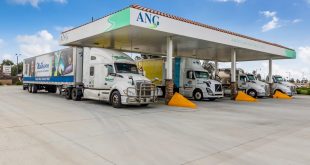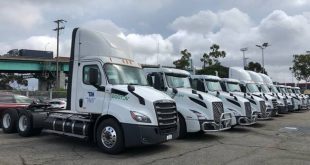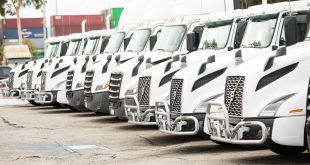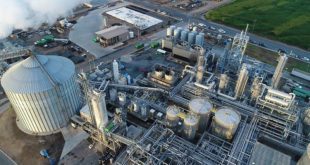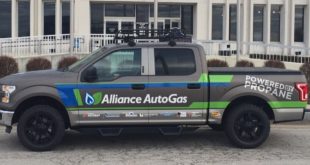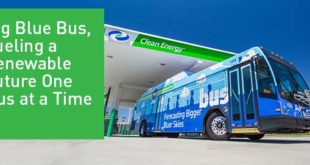UPS TO EXPAND NATURAL GAS FOOTPRINT
Thirteen new LNG fueling stations to be operational by the end of 2014
UPS® (NYSE:UPS) announced today plans to invest approximately $50 million to build an additional nine liquefied natural gas (LNG) fueling stations, bringing the total number of stations to 13. Four were announced in April, and all should be operational by the end of 2014.
The enhanced LNG fueling infrastructure will support the operation of approximately 1,000 UPS LNG tractors that will displace more than 24 million gallons of diesel fuel annually. UPS has used LNG vehicles for more than a decade and has benefited from lower fuel prices compared to imported petroleum.
“The natural gas industry needs companies to commit to using natural gas to help establish a reliable alternative to traditional fuel, and that is just what UPS is doing,” said David Abney, UPS chief operating officer. “The UPS strategy is both environmentally friendly and economically viable. LNG is becoming more readily available, plus it’s more insulated from market volatilities than diesel fuel.”
The expansion will include on-site fueling stations in Florida, Illinois, Indiana, Mississippi, Missouri, Ohio, Pennsylvania and Texas. Construction is already underway at previously-announced UPS facilities in Tennessee and Texas. Currently, UPS operates LNG tractors in Las Vegas, Nev., Phoenix, Ariz., Beaver and Salt Lake City, Utah, and, Ontario, Calif. UPS began using LNG tractors in its delivery fleet in 2002.
“Building these fueling stations is a solid future investment for UPS,” said Abney. “Since vehicles represent approximately 35 percent of UPS’s carbon footprint, a cornerstone of the company’s environmental strategy is to support the development and use of lower-emission alternative fuels. By 2017, our goal is to reach one billion miles driven by our alternative fuel and advanced technology fleet. To accomplish this goal the company must continue to innovate and help pave the way toward more sustainable transportation solutions.”
UPS operates one of the largest private alternative fuel fleets in the industry with more than 2,700 alternative fuel and advanced technology vehicles. This includes all-electric, hybrid electric, hydraulic hybrid, CNG, LNG, liquid propane gas (LPG), biomethane, and light-weight fuel-saving composite body vehicles.
The company takes a “rolling laboratory” approach which means it’s always testing different technologies to find the best sources of energy for its vehicles. UPS recently began a pilot program testing propane vehicles in Gainesville, Ga., and over the past year has deployed 20 biomethane vehicles in the United Kingdom. UPS also currently operates approximately 1,000 compressed natural gas (CNG) vehicles and will begin a pilot program testing CNG tractors in early 2014 as it continues to look toward natural gas as a substitute for conventional fuel.
Between 2000 and the end of 2012, the UPS alternative fuel and advanced technology fleet logged 295 million miles. In 2012, the growing fleet drove 49 million miles, a 43 percent increase compared to 2011.
For more information on UPS’s sustainability initiatives, review the company’s entire 2012 Corporate Sustainability Report at www.ups.com/sustainability.
 Alternative Energy HQ solar power for homes, wind energy, and bio fuel issues
Alternative Energy HQ solar power for homes, wind energy, and bio fuel issues





